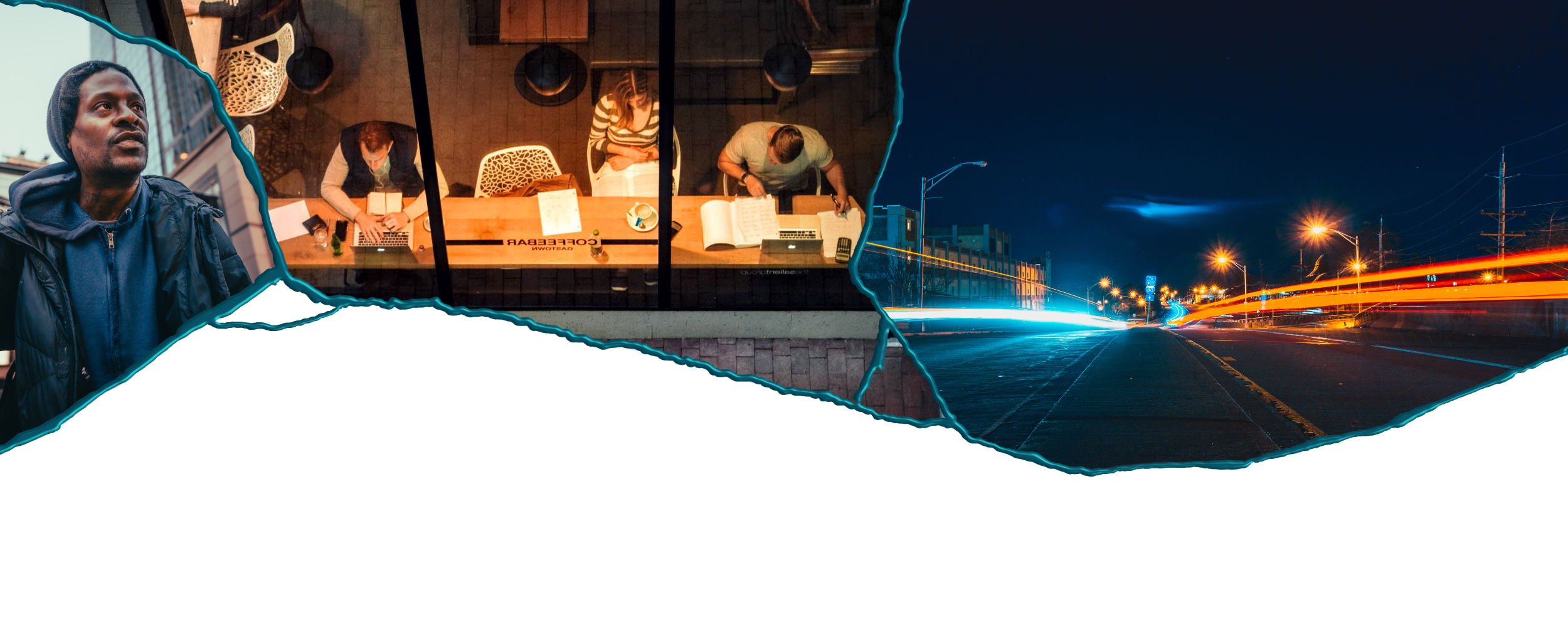
FAQ
WHAT IS RECOVERY CAREER SERVICES’ MISSION?
Our mission is simple: We help individuals in recovery from addiction, homelessness, and past criminal justice involvement find, get and keep employment.
The main tool we use to do this is customized confidential career coaching. We also provide workshops, public speaking, and consulting for businesses considering how 2nd chance employment can benefit their organizations.
How do I know if this is the right program for me?
We help people who’ve reached career rock bottom, those still sliding downhill, and those climbing their way out. Some people have been unemployed for a while; some just lost stable employment. Others may be responding to a reprimand or even a threat of termination. No matter where you are in your career, it’s the right place to start. We work with people who struggle with addiction, and people who’ve had gaps in employment and housing. Our individual programs were designed for those who’ve achieved a month of sobriety; career counseling may be available for those who have just entered a treatment program. Every story is different. So is every ending. Connect with us to learn more about what we offer and how our programs can get you back on track.
What does it cost? What do I do if I Can’t afford it?
All of our career coaching services are very reasonably priced—or free—for those in early recovery or with recent criminal convictions or incarceration. Donations from those who support our mission allow us to provide these needed services for clients who cannot afford them. Slots are limited, but we do maintain a waitlist.
If you currently work and can afford to pay (or your employer will), then a reasonable fee arrangement can be found.
How do I get started?
To get started, simply contact us. It is recommended that individuals who enter our Clean Comeback Program have at least 30 days of sobriety and that people using our Reclaim My Career Program be open to drug and alcohol abstinence or a plan that includes lower levels of consumption.
Why is this urgent?
Multiple studies have shown that having a purpose is an important factor in whether someone stays in recovery, and employment is the best way to provide purpose, rebuild lost self-worth, and contribute to society. Without it, individuals are more likely to relapse starting the destructive cycle once again. It is critical that support is offered for those rebuilding their lives, and for those attempting to hold life together.
The employment concerns for individuals in recovery are different than for most. If someone has been out of the workforce, there may be job gaps to overcome and criminal history to explain. If a person is lucky enough to still be working, he may have to save his job and rebuild his reputation, all while trying to navigate a different relationship with alcohol and drugs. There are currently very few options available for career services focused on these two important groups.
How Can I Help?
Your donation will be used to provide career coaching for individuals in early recovery who cannot afford it. This will include helping them:
Discover often-ignored skills, talents, and interests and recognize their value in the employment marketplace
Prepare resumes and cover letters
Prepare for employee interactions through mock interviews and role-playing
Search for and get the first job in recovery
Build a career roadmap for the next 1, 3, and 5 years
Create a plan for continuing education and skill development
Find a long-term career
What’s with all the broken pieces?
Kintsugi is the art of broken pottery. It employs lacquer and metal dust, often gold, in the repair of damaged pottery and ceramics. A practice begun centuries ago, the result was often more aesthetic than the undamaged original, and the repaired pieces became highly valued, resulting in both a practice and a philosophy of finding beauty in healing.
Kintsugi is a material example of the potential inherent in things that seem useless, and an apt metaphor for our own journeys. “Homeless” is not a personality trait. “Addict” is not a permanent condition. But we use these words to describe people as if they are fixed and immutable; we ignore all the potential that damaged people have to offer.
Ty’s past is just prologue. Today, his story inspires large audiences and individual clients as he provides them with the tools they need to rebuild their lives; to heal and renew.
Kintsugi recognizes the value in everything, and serves as the inspiration for the design of our brand, the images used on this site, and our approach to serving the needs of our constituents.

